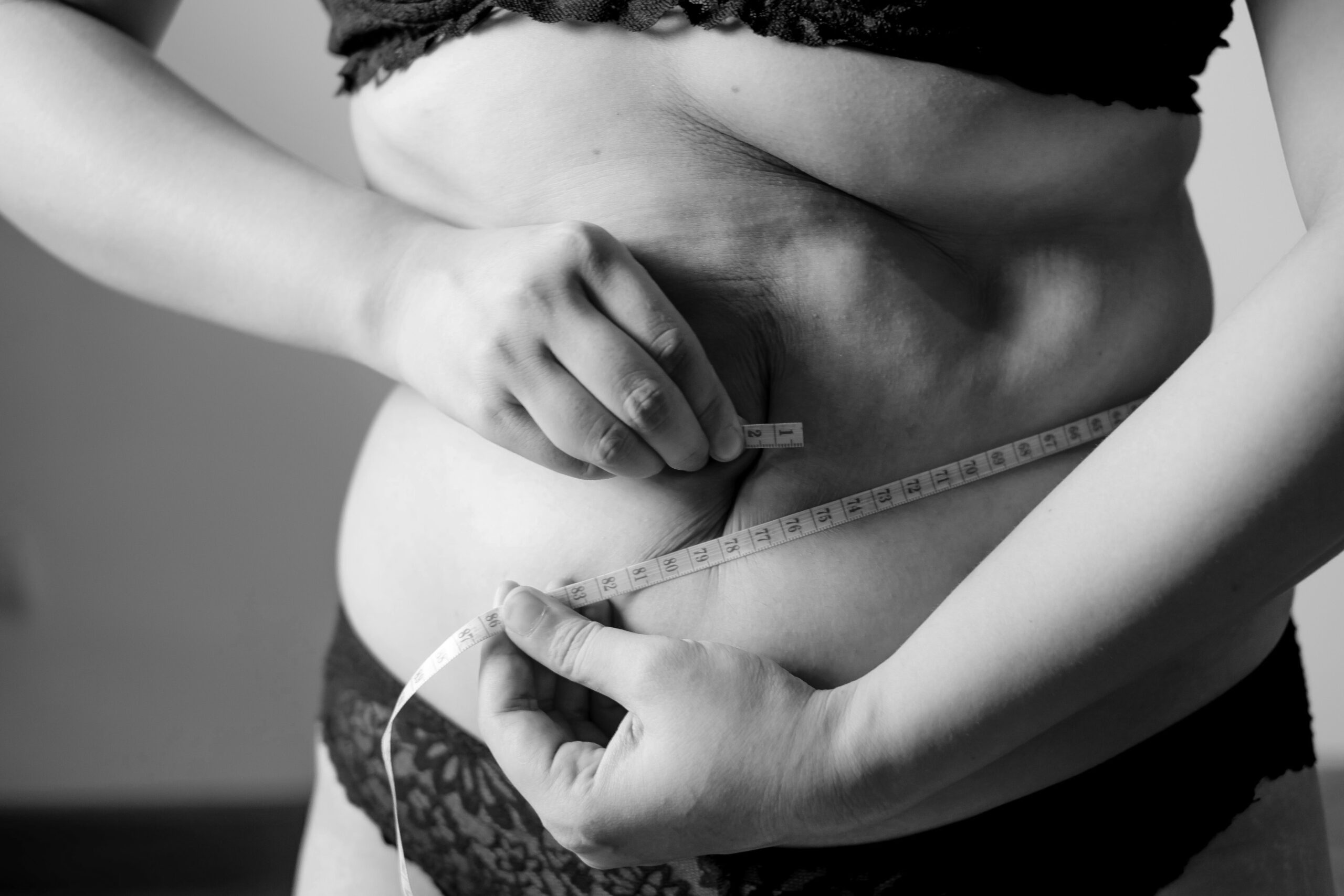
How to lose weight in perimenopause
In this article
What's the lowdown?
During perimenopause, fluctuations in the hormones produced by our ovaries can cause metabolism to change, which can lead to weight gain.
Perimenopause comes with some major hormonal changes and also the start of some longer-term health risks, which can be combated through diet and exercise.
There are some specific exercises and foods that might help you feel your best during the perimenopause transition.
There may also be a role for medications if perimenopause weight gain is a problem for you.
Can perimenopause cause weight gain?
Perimenopause is the time before menopause, during which the two main female hormones (oestrogen and progesterone), change and gradually decline. Weight gain is a common issue for women in this period of their lives, with up to 50% reporting that they had gained weight1. In fact, the average weight gain is thought to be around 1.5kg per year during the perimenopause transition1.
There are a number of reasons why women might gain weight around perimenopause.
As oestrogen levels fall, the way our bodies process the food that we eat changes. Essentially, the rate at which we burn calories reduces, which can lead to more fat build up. This can lead to weight gain, which many people notice around their waist line and lower back1,2.
Having less lean muscle and more fat in the body causes metabolism to slow down, leading to increased weight gain.
Falling levels of oestrogen in perimenopause can lead to our fat cells becoming less sensitive to insulin (a hormone which helps our bodies move sugar into cells). Having high insulin levels sends a signal to your body not to burn fat, but to store it. This can lead to weight gain3.
During perimenopause, many women struggle with feeling tired or not sleeping well (often as a result of other perimenopause symptoms such as hot flashes or feeling stressed). This can make it really difficult to find the motivation and energy needed to exercise and make healthy choices when it comes to food.
So as you will see, perimenopause and weight gain are linked closely together. Tackling this is important not just for how you feel about your body in perimenopause, but also for the long term health of your blood vessels, heart, brain and bones.
There are different strategies that you can use to help combat the natural changes that occur during the perimenopause period, and keep yourself healthy and active in the long term.
How to lose weight during perimenopause?
Unfortunately there is no ‘one size fits all’ answer to “how can I lose weight in perimenopause?”. The right combination of diet and lifestyle measures is individual to you. Of course, trying to maintain a healthy weight and considering your long term health is important.
You may want to use measurement, such as your body mass index (BMI) or your waist to height ratio, to help you set a realistic target to either maintain, or lose weight4.
Here are some ideas of how you can manage your weight in perimenopause, including how to lose weight without Mounjaro, Ozempic or Wegovy in perimenopause.
Perimenopause exercise
The best exercise for perimenopause is something that you enjoy and can stick to doing on a regular basis. Ideally, your exercise regime should include a mixture of aerobic exercise (where you raise your heart rate), some strength training, and something to help maintain the mobility of your muscles and joints.
- Examples of aerobic exercise include walking, cycling, jogging, swimming, and dancing. Aim to get your heart rate up to >150 beats per minute and keep it there for around 30 minutes, five times per week5. If doing this five times a week doesn’t fit in with your schedule, you could try building up 150 minutes of exercise over fewer sessions.
- For strength, you could try a gym class or free-weights, or if that doesn’t suit you then you could use body-weight exercises such as planks or squats5 . There are many free YouTube videos with short bursts of strength training for menopause.
- Mobility can be incorporated through yoga or pilates5.
As well as helping you shift the calories and build muscle (and slowing down perimenopause weight-gain), exercise in perimenopause has some important long-term health benefits.
As we go through perimenopause, bones can become weaker as hormone changes mean we lose some of the minerals that keep them their strong. This can lead to an increased risk of broken bones as you get older. Weight training has been shown to improve the strength of bones to prevent this6.
Aerobic exercise can keep our blood pressure in a healthy range and also reduce the risk of heart attack and stroke7. It may also help with some other perimenopause symptoms, such as hot flashes.
Exercise is good for your brain! Not only does exercise in perimenopause help protect against dementia, women going through perimenopause (and all of the emotional shifts that it brings) find that they cope better with their symptoms. Some women even prefer to use exercise instead of medication to help them manage8.
Perimenopause diet and nutrition
It is important not to follow a restrictive diet during perimenopause, as this can lead to the loss of important vitamins and minerals, which could make some perimenopause symptoms worse1. We suggest starting with educating yourself about which foods are helpful in managing perimenopause symptoms and protecting your long term health. Use this knowledge to help you make informed choices about your diet. Ultimately, food is also about enjoyment, so experiment and find options that suit you.
In order to lose weight in a way which is sustainable in the long term, you should aim to use around 500 cal per day less than you take in1. This can be achieved by eating less calories, exercising more to burn calories off, or a combination of both. The key is having a diet which you enjoy and is beneficial to your overall health. Here are some specific tips;
- You should make sure that your diet contains plenty of protein (ideally about a quarter of each meal)1. This helps keep you full, keeps your blood sugar stable, and helps you to build muscle through exercise.
- Calcium is key in perimenopause, as declining levels can lead to bones becoming weak. Generally women in perimenopause need 2-3 portions of calcium per day1.
- Low glycaemic-index (GI) carbohydrates should make up about ¼ of each of your meals1. Good examples of this include porridge, multi-grain breads, barley, and couscous (although there are many more examples).
As well as using foods to help you lose weight in perimenopause and to maintain your health, there are also some foods that can make perimenopause symptoms worse. Caffeine, alcohol and spicy foods are common culprits9.
Reducing stress levels in perimenopause is also important, as stress causes our bodies to release cortisol (the stress hormone) which can worsen insulin resistance and lead to further weight gain.
Improving sleep quality
It’s all very well saying that you need to exercise more in order to feel well and lose weight in perimenopause, but that can be tricky to do if you are struggling to get any quality rest! Prioritising rest between workouts helps muscles and joints recover adequately to take on their next challenge.
Managing sleep is another essential way to reduce stress and cortisol. Many women have trouble sleeping in perimenopause, but we have a guide to help improve sleep in perimenopause.
Medication for Perimenopause Weight Loss
If eating well and exercising regularly are just not helping you shed the pounds, then you might wonder if medication could help you. There has been a lot of talk about this in the media recently.
GLP-1 agonists (marketed under their brand name such as Wegovy, Mounjaro and Ozempic) were originally developed to help people with type-2 diabetes. They are increasingly being used to help women lose weight in the perimenopause.
Wegovy, Ozempic and Mounjaro have been shown to be effective to help weight reduction in women with obesity (a BMI above 30kg/m²) or who are overweight with weight-related comorbidities (with a BMI above 27kg/m²) such as heart disease10.
However, at the moment there is a lack of evidence about how well they work and whether the weight loss they offer can last in the longer term11. There are also some side effects that should be considered before deciding if using one of these medications is right for you.
If you have tried Wegovy, Ozempic or Mounjaro in perimenopause, please let us know how it affected you by sharing a review to help other women.
Trying to either maintain your weight or lose it during perimenopause can feel like a real uphill challenge. However it’s never too late to start to prioritise your long term health.
If you are struggling to make head-way or want to consider whether medical options are right for you, speak to your doctor or look at the Stella online menopause clinic for support with weight gain during menopause…
Our medical review process
This article has been medically reviewed for factual and up to date information by a Lowdown doctor.






